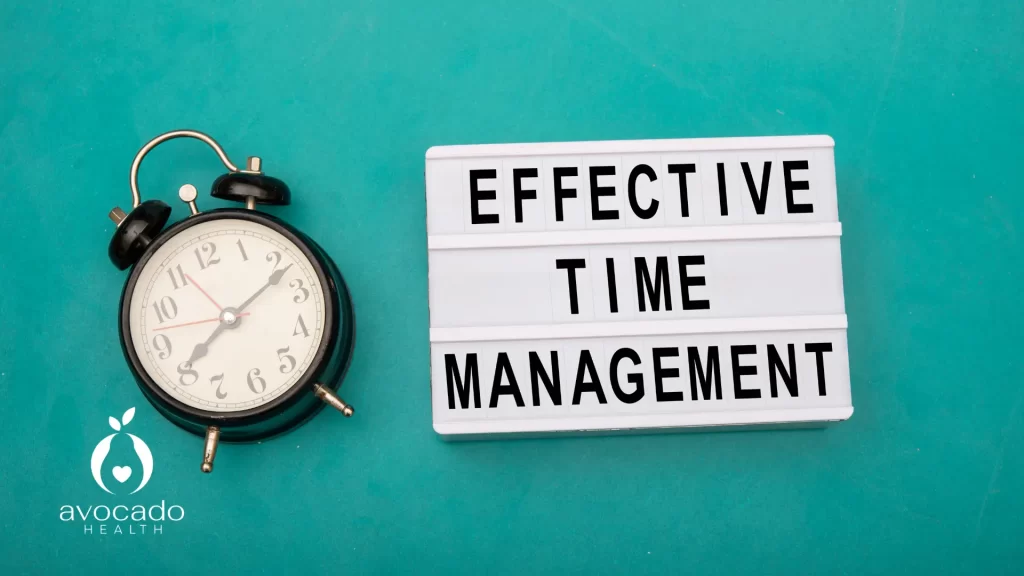Trying to manage stress as a working parent can feel like spinning plates—work deadlines, family needs, and zero time for yourself. But it doesn’t have to be this way.
By setting clear boundaries, practicing self-care, and building strong support networks, you can ease the overwhelm, boost your focus, and be more present at home and work. It’s not about doing more—it’s about doing what matters, better. Here’s how to manage the stress and actually thrive while you’re at it.
Table of Contents
What Are The Challenges of Being a Working Parent?

Working parents face unique challenges, especially when balancing professional and personal responsibilities, which can often lead to increased mental health risks for many mothers.
This is frequently due to the constant juggling of work and family responsibilities, and these ongoing challenges can unfortunately lead to feelings of guilt and self-doubt over time.
Research has consistently shown that long-term exposure to these significant stressors can indeed result in parental burnout, negatively affecting both their mental health and overall family dynamics. [1]
These mental health challenges often appear as more anxiety and a constant feeling of being overwhelmed. Research shows that 42% of working mothers struggle with depression and/or anxiety.
1-Balancing work and family life

Juggling work and family life significantly stresses many working moms. Constantly juggling work, household tasks, and caregiving responsibilities often leads to feelings of guilt and self-doubt.
Many moms find themselves comparing their efforts to others, which only adds to the stress. The balance between work and family can lead to burnout. This leaves little time and energy for personal life and self-care.
Studies show that mothers feel burnout 32% more often than fathers. This highlights the special pressures they face in balancing work and home life.
2-Financial pressures
Financial pressures are a common source of stress for working parents. High childcare costs and household expenses can strain finances, affecting mental health and overall well-being.
Many working moms find it hard to make ends meet. They want to give the best to their families. This often leads to stress and anxiety.
3-Unrealistic Expectations and Stereotypes
Working moms often face societal pressure that shapes their experiences both at home and in the workplace.
Employers and coworkers often see them as less dedicated to their jobs. This is especially true compared to male coworkers or those without children. This can limit their chances for promotions and career growth.
Outside work, people expect mothers to do it all perfectly. They should excel at their jobs and be the main caregivers. This pressure to “do it all” can lead to guilt and frustration when the balance feels impossible to maintain.
4-Workplace Bias and Discrimination
Unfortunately, discrimination against working moms “motherhood penalty” still exists in many workplaces. Some mothers are passed over for promotions or challenging projects based on outdated assumptions about their availability or commitment.
5-Lack of support systems

Without support systems, working mums are affected mentally. Many mums struggle to juggle responsibilities without support at work and home and end up feeling overwhelmed and exhausted.
When support systems are missing, working mums feel more alone and inadequate.
Parent coaching and counseling can be gold for working parents who are facing these challenges. Workplace wellness programs and a tribe of female friends can help working mums’ mental health.
3 TOP Practical Strategies to Manage Stress as a Working Parent

Managing stress as a working parent means using practical tips and self-care. These help working mums balance work and home life.
Prioritize self-care
Self-care is key to mental health and wellbeing. Simple habits like exercise and relaxation can boost mood and reduce stress. Making self-care a daily habit helps balance work and family life.
Staying hydrated prevents fatigue and headaches, healthy snacks keep energy levels up, small mindful choices can make a big impact on how you feel each day.
Regular self-check ins and a consistent self-care routine can improve overall wellbeing. Addressing potential stressors early on helps prevent burnout in working mums and supports a healthy work-life balance.
Set clear boundaries

Balancing work and personal life can be tough. However, setting clear boundaries can lower stress and boost well-being.
Without clear boundaries, working caregivers may find it hard to focus at work and at home. This can lead to more stress and tiredness.
Establishing clear limits allows parents to be more present with their families, strengthening relationships while maintaining productivity. Here’s how you can create a healthier balance:
- Set Clear Work Hours – Clearly state when your workday starts and ends. Try to keep work from taking over your personal time. This prevents burnout and ensures quality family time.
- Create a Dedicated Workspace – If you work from home, having a specific area for work helps you focus. It also makes it easier to unplug at the end of the day.
- Take Regular Breaks – Short breaks throughout the day help recharge your energy, improve focus, and prevent mental exhaustion.
- Be Open About Your Boundaries – Communicate with colleagues and family about your availability to prevent unnecessary interruptions and maintain balance.
Effective Time Management

Managing time helps working parents not feel overwhelmed. Focusing on tasks and delegating duties reduces stress and increases productivity. Here are some time management tips:
- Eat the Frog Method – Start with the hardest task to get focused and efficient.
- Give Each Task a Time Limit – Set specific times to stay focused and avoid procrastination.
- Use Calendars and To-Do Lists – Organise tasks and deadlines to stay on track.
- Delegate – Share tasks when you can to lighten the load.
- Get your kids involved in simple, age appropriate chores around the house! A great opportunity to bond, teach life skills and lighten your load.
Building a Support Network

A strong support network is crucial for the well-being of working parents. Emotional and practical support from others can significantly alleviate stress and help manage the challenges of working parenthood. Building a robust support network involves:
Seek support at work
Open communication about work-life balance challenges creates a work culture that supports working parents.
Ask for coverage for important meetings or more time off to reduce stress and overwhelm.
Set boundaries between work and personal time is key to a healthy work-life balance.
Communicate boundaries to colleagues and family to balance responsibilities.
Take Parental Leave: Taking parental leave gives you time to bond with your child. It helps you adjust to new family duties without extra work stress.
Support from employers and colleagues can reduce stress and create a more supportive work environment.
Lean on friends and family
Having friends and family involved in childcare reduces stress for working parents. Asking friends or family for help makes life more manageable between work and parenting. Having family and friends involved provides emotional support during tough times.
Sharing childcare with trusted people helps working mums with the daily grind. This support network helps with practical tasks and emotional backing for overall wellbeing.
Join a parenting group
Joining a local or online parenting group gives you a platform to share and get support. These groups offer great advice and shared experiences to help with parenting challenges.
Parenting groups can give busy mums a sense of community and reduce feelings of loneliness.
Stress Relief Coping Mechanisms
Coping mechanisms are key to managing working mum stress and mental health. Here are some practical tips to help working mums balance and not burn out.
1-Practice mindfulness

Mindfulness techniques effectively calm the mind and reduce anxiety. Activities like:
- Deep breathing – Helps relax the body and reduce stress.
- Repeating positive affirmations – Reinforces a sense of calm and confidence.
- Body scan meditation – Focuses on different parts of the body to release built-up tension.
- Journaling – Writing thoughts or daily reflections can be a great habit. Practice gratitude by jotting down two to three things you appreciate each day.
- Taking short mindful breaks throughout the day to stay present and reduce anxiety.
These practices help maintain a calm perspective during stressful moments.
Regular mindfulness practice can provide relaxation and a clearer viewpoint on life’s challenges. These techniques are crucial for managing stress and maintaining mental health.
2-Engage in physical activities

Regular physical activity and outdoor exercise are crucial for boosting mood, enhancing mental health, and combating stress. Busy moms should aim for at least 30 minutes of exercise each day, including fun activities with their children.
Here are some enjoyable activities that can reduce stress while spending quality time with children:
- Playing Tag or Hide-and-Seek – Fun ways to stay active while engaging with kids.
- Bike Riding – A great way to enjoy fresh air and movement together.
- Jump rope or hula hooping are fun activities that make us laugh and feel happy. Laughing lifts our mood, helps reduce stress, and boosts endorphins.
- Blowing bubbles
- Dancing
- Playing with pets
These activities not only promote physical health but also strengthen the bond between parents and children.
Fresh air and exercise calm the mind, reduce fatigue, and boost mood. Regular physical activity significantly enhances overall well-being.
3-Creative outlets

Doing creative things is a healthy way to get away from stress and overwhelming thoughts. It makes your mind focus on something else.
A creative outlet is anything that uses your creativity, feelings and thoughts. It relaxes you, reduces anxiety and improves mindfulness just like meditation.
For working mums, creative outlets are a powerful way to release stress, express themselves and connect with their kids. Some examples are:
- Painting or Drawing – Even simple doodling can be calming.
- Crafting – DIY projects, knitting or scrapbooking.
- Music – Playing an instrument, singing or listening to uplifting music.
- Photography – Taking photos of family or nature.
- Cooking or Baking – Trying new recipes for relaxation and fun.
Doing creative things in your daily routine promotes mindfulness, gives you a sense of achievement and overall wellness.
How to Be a Better Mom When You’re Feeling Stressed?

Being a mom is tough. When you add financial pressures like childcare and living costs, it can feel too much. Almost 93% of mothers say they feel burned out every day. So, how can you be a better parent when stress is high?
Recognizing Signs of Burnout

Burnout is more than exhaustion—it’s a deep state of emotional, physical, and mental depletion. Many mothers experience Depleted Mother Syndrome, feeling overwhelmed as their children’s needs grow while juggling daily responsibilities.

Find your stress triggers and address them early to stay well. When stress gets too much, seek help to prevent long term damage to mental and physical health.
It’s your anxiety, not your child’s: Sometimes it feels like everything is out of control. But remember it’s your anxiety to manage, not your child’s.
Accept the anxious moments: It’s normal to feel anxious sometimes. Acknowledge those feelings instead of fighting them – they’re part of the process.
Get Professional Help
Chronic fatigue, irritability and lack of motivation are clear signs you need support. Parent coaching, therapy or counseling can give you practical tools to manage work and family demands. Employee assistance programs (EAPs) give you access to mental health resources to reduce stress and prevent burnout.
How Avocado Health Helps You Manage Stress as a Working Parent
Balancing work and parenting can be tough. Avocado Health helps by offering expert-backed, text-based parent coaching. This service gives you real-time guidance that fits your needs.
Instead of searching for answers all the time, you get helpful advice that reduces stress. This advice helps you stay focused, confident, and present for what matters most.
Summary
Balancing the demands of work and family life as a working mom is undoubtedly challenging. By focusing on self-care, setting clear boundaries, using your time well, and building a strong support network, you can handle working parent stress.
This will help you succeed in both your work and personal life. Recognizing the signs of burnout and seeking professional help when needed are crucial steps in maintaining mental well-being.
Frequently Asked Questions
What is working mom guilt?
Working mothers constantly strive to balance their careers while being loving, present parents. Guilt often creeps in—worrying about missing moments with their kids while also feeling pressured to stay committed at work. It can feel like a delicate balancing act.
How to manage Mom Guilt?
Mom guilt is a common struggle, but it doesn’t have to define your parenting experience. Instead of letting it weigh you down, try these practical ways to cope with it:
Let go of the “shoulds”, as in “I should have done this or I should have done that”. Constantly thinking about what you should do can lead to guilt and even shame.
Reframe mom guilt by recognizing its positive side—it shows how much you care.
Connect with other understanding moms who can relate to your experiences.
Celebrate your parenting successes, no matter how small.
Reflect on the qualities you want to instill in your children and lead by example.
What are the symptoms of a depleted mother?
Mothers may struggle with persistent exhaustion, sleep disturbances, body aches, and low energy levels. This physical strain can heighten emotional sensitivity and make it harder to manage stress effectively.
📚 References
- Roskam, I., Brianda, M.-E., & Mikolajczak, M. (2023). A systematic review of parental burnout and related factors among parents . BMC Public Health.
Dad of 5. CEO & Co-Founder of Avocado Health. Former HealthTech & FinTech Founder. Passionate about empowering families and driving change in parenting and child development.

